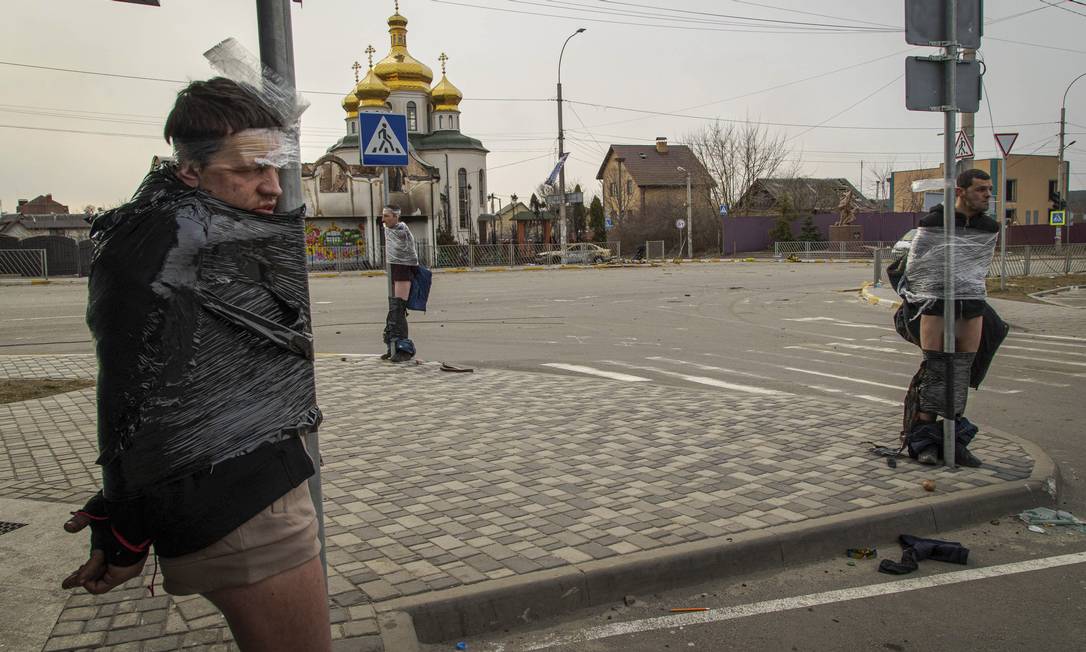 |
| Os três homens acusados de roubar casas em Irpin e que foram exibidos na entrada da cidade no sábado Foto: YAN Boechat |
Ausriß O Globo, Stadt Irpin.
„USA Bombing List: The Democracy World Tour“. „Never forget who`s the real threat to the world“.
 |
| Os três homens acusados de roubar casas em Irpin e que foram exibidos na entrada da cidade no sábado Foto: YAN Boechat |
Ausriß O Globo, Stadt Irpin.
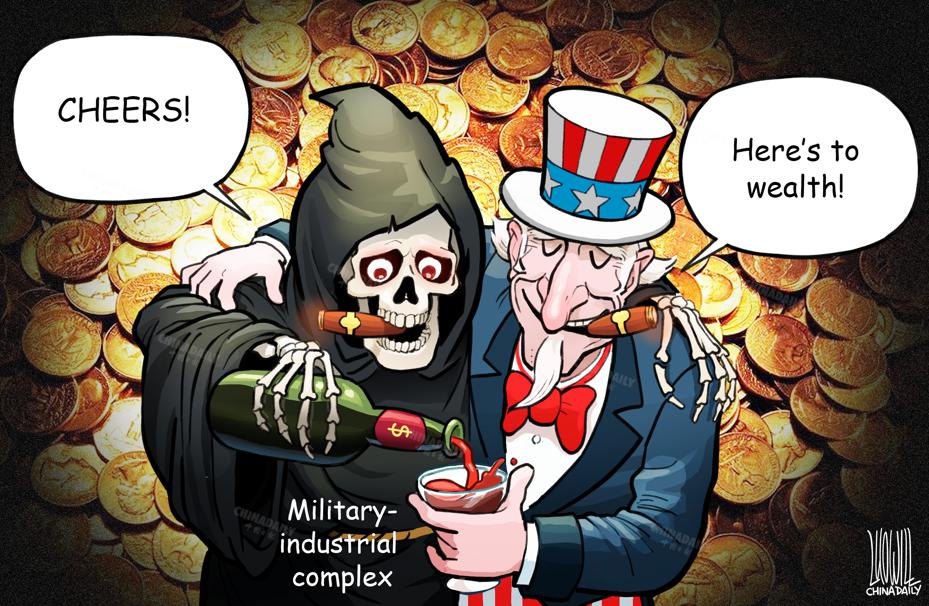
Ausriß.
European Commission President Ursula von der Leyen announced on Sunday that the European Union will ban Russian TV channels such as Russia Today and Sputnik from broadcasting and publishing in the European Union. She called the news outlets „Kremlin’s media machine“ and said „we are developing tools to ban their toxic and harmful disinformation in Europe“.
But the ban, which the EU imposed on Tuesday, violates the freedom of the press which the EU claims to advocate.
I am not trying to grade news outlets or take sides. But the fact that RT and Sputnik have been broadcasting in Europe and other parts of the world for many years shows they have been accepted, at least to some extent, by local viewers.
In the United States, cable networks such as Fox News and CNN have sometimes accused each other of spreading disinformation, but neither has called for proscribing the other.
Listening to or reading reports and opinions broadcast or published by different media outlets is like attending a seminar with a panel of experts with different views, which is far more thought-provoking than one with panelists repeating identical views, which is sadly the case with many TV channels such as CNN these days.
During my years in the US, I watched both CNN and Fox News not because I agreed with their interpretations of news and the state of global affairs. I did so because I like to listen to different views and make my own judgment. I also watched international broadcasters such as BBC, Al Jazeera, RT, DW, France 24, TRT, NHK and China’s CGTN. Listening to wide-ranging views is far more educational than watching channels that you always agree with.
English writer Evelyn Beatrice Hall, known for her works on French philosopher Voltaire, famously said: „I disapprove of what you say, but I will defend to the death your right to say it“. That is the principle of freedom of speech and freedom of the press.
And that’s why the EU should protect Russian news media’s right to broadcast and interpret news from their own perspective, especially when mainstream US and European media covering global and regional conflicts don’t give a balanced view and thus risk misleading their public.
As a journalist, I believe listening to both sides or multiple sides to a dispute keeps you better informed, irrespective of whether you take sides or not.
Now that the EU has imposed the ban on RT and Sputnik, Russia is likely to respond in kind. That means some EU news channels may have to go off the air in Russia, and lose the opportunity to inform the Russian public about their views and interpretations of news.
While the move to target news media?or the messenger?may be unprecedented for EU leaders, former US secretary of state Mike Pompeo triggered a tit-for-tat on news media between the US and China a couple of years ago.
The two governments finally agreed in November to ease the restrictions on the access to journalists in each other’s country before a virtual meeting between President Xi Jinping and President Joe Biden. Yet Pompeo’s absurd policy is yet to be fully reversed despite some initial progress.
It is bad for Chinese and US journalists, who have become collateral damage of such tit-for-tat on the news media. It is bad for the two countries at a time when they need to understand each other better, something the news media can play a big role in facilitating.
That applies to the EU too. Once you start a tit-for-tat on news media, it’s likely to last a long time and not easy to reverse. Moreover, by banning RT and Sputnik, the EU is depriving the European public of the right to know and access information from different sources, apart from infringing upon the freedom of the press, which it said it holds dear.
–

–
–

Ausriß – Eisenach 2022.
Ausriß Der Spiegel 2022: „Wenn Russland und China noch enger zusammenrücken, haben wir schlechte Karten.“
–

–
Source: Xinhua
Editor: huaxia
2022-02-28 15:01:30
BEIJING, Feb. 28 (Xinhua) — China’s State Council Information Office on Monday issued the Report on Human Rights Violations in the United States in 2021.
The report said the human rights situation in the United States, which has notorious records, worsened in 2021. Its political manipulation led to a sharp surge in COVID-19 deaths while shooting deaths in the country hit a new record.
Fake democracy trampled on people’s political rights and violent law enforcement made life harder for migrants and refugees in the United States, it said.
The report also highlighted the country’s growing discrimination against ethnic minority groups, especially people of Asian descent.
Unilateral U.S. actions created new humanitarian crises across the globe, it added.
–

Editor’s note: China will hold the annual sessions of the National People’s Congress and the Chinese People’s Political Consultative Conference National Committee from March 4. Two experts share their views on China’s democracy.
For decades, the world has been made to believe that Western democracy is the key to economic success, and market economy is inseparable from democracy. After the end of the Cold War following the collapse of the Soviet Union, Japanese-American political economist Francis Fukuyama even declared that Western liberal democracy is the ultimate form of government for all countries, and there can be no progression from liberal democracy to an alternative system.
Nonetheless, the myth he propagated in his The End of History and the Last Man was short-lived. In fact, it was proven wrong with the emergence of China as a rising economic power after its accession to the World Trade Organization in 2001.
Even after two decades of joining the WTO, China continued with its people-centric governance and has once again proven its economic prowess when it surprised the pandemic-stricken world by emerging as the only major economy to register positive economic growth amid the raging pandemic in 2020. Yet China is not in an enviable position.
West uses democracy as a political weapon
The global hegemonic power, obsessed with its imagined geopolitical rivalry with China, became even more perturbed with China’s growing global influence when China’s medical supplies, vaccines and experience in fighting the COVID-19 pandemic were immensely sought after across the world. China rose to the call for coordinated international cooperation to fight the contagion. However, its dispatch of humanitarian aid was deliberately distorted by the United States as a covert act of exporting its „authoritarian“ model of governance to other countries.
US President Joe Biden has gone even further, describing the US-China relationship as „liberal democracy versus authoritarianism“, which is nothing but a battle cry for ideological confrontation and a reflection of the zero-sum game the US has been playing.
Worse, the US resurrected the old label of „authoritarianism“ from its Cold War toolbox in its bid to alienate China from the international community. In this perspective, rhetoric of „countering authoritarianism“ cloaked in the outfit of democracy has since become a convenient rallying call for the US and its allies to stigmatize China.
Democracy, a shared value of humanity, is not the monopoly of any specific country. Nor should it be weaponized to meet or enhance a country’s geopolitical interests. No administration has ever had the carte blanche to impose its desired norms and policies on others in the name of democracy. It remains a choice of polity that allows people’s aspiration to determine the mode of governance of a nation in the interest of their well-being. This is made possible through their elected representatives to the legislatures premised on various electoral systems or selection criteria in different countries.
Over the years, the international community has generally accepted the definitions and norms of political systems set forth by the West. Universal suffrage and a multiparty electoral institution with a „check-and-balance“ mechanism have been touted as the cornerstone of democracy. But the „one size fits all“ model stands to be contested, as democracy has never been homogeneous in form. Nor is it a panacea for all governance problems.
The „one-man, one-vote“ electoral institution is not without its flaws. In many countries where multi-party democratic elections are held every four or five years, notably where the „first past the post“ system is adopted, gerrymandering of electoral boundaries remains one of the common flaws and key concerns to be addressed.
The spirit of „one-man-one-vote“ is greatly at stake when the demarcation of electoral boundaries is deliberately done with unjust weightage in favor of certain parties. This is readily identifiable as in many cases it contributes to the anomalies of popular vote tally incompatible with the number of seats secured, a scenario where a party polling less than 60 percent of the votes commanding more than two-thirds seats in parliament is a classic example of an election fraud. Such fraudulent representation breeds skewed democracy.
While the West placed due emphasis on the power of ballots in the name of practicing „one-man-one-vote“, the real participation of the electorate in shaping the nation’s governance could hardly go beyond the electioneering process. The post-election policy formulation is almost the monopoly of the legislators, some of whom might be sheer novices bereft of experience and knowledge of public administration. After all, populism is now the key determinant in an election while meritocracy is unabashedly compromised.
Political system used to checkmate rival party
While the system is prevalent?as it is accepted as a common international norm in the world of electoral democracies?the institutionalized „check-and-balance“ mechanism in Western democracies appears to be the only „cornerstone“ left for their advocates to take pride of.
Habitual rivalry and face-offs among legislators of different political affiliations dominate the parliamentary debate, albeit deemed unproductive in many instances, in the name of „check-and-balance“. The mechanism may have been designed with good intentions?to preempt abuse of power?by the founding fathers of Western democracy, but with partisan interests increasingly gaining favor over matters of real concern these days, incessant locking of horns over petty issues of partisan concerns is now a common sight in parliaments. It is indeed a travesty of statecraft. And it would only hurt a country if governance is disrupted.
Parallel to this, in the Westminster’s and American Congress‘ perspectives, filibuster is a permissible act where prolonged speech aimed at obstructing progress in the legislature is no offense, although it comes at the expense of taxpayers‘ money, as every minute of the proceeding in chamber costs the nation.
The magnitude of such adverse impacts is further amplified in the case of a bicameral legislature which comprises two houses of different sets of members elected or selected through different mechanisms. As both houses have the liberty of making their own decisions on the same bill, it is not uncommon for a bill of State importance, budgetary bill included, to be passed only by one house and torpedoed by the other. In many instances, this is done just to checkmate the ruling party out of partisan interests.
A current case in point, the scrambling for control of both Houses of American Congress, namely the House of Representatives and the Senate, has been so intense that neither of the two major parties, Democrats and Republicans, has ever had a clear majority and confidence in getting their respective sponsored bills passed. Even budgetary bills for infrastructural development have to rely on bipartisan consensus for their ultimate passage. And the meteoric rise of China, much to the chagrin of the US lawmakers, is the only bipartisan bogeyman that could be resurrected to this end.
In other words, the US administration has to secure the Congress‘ nod for funds to bankroll the country’s infrastructure development, largely if not solely by exploiting the US paranoia of being overtaken by China in multiple spheres. This, paradoxically, makes China, the chief challenger to American primacy, the driving force for the US‘ long overdue infrastructure development.
Such inference may sound somewhat hilarious but the „anguish of displacement“ or the „alarm bells“ China tends to set off in some US politicians remains the elephant in the room. Beyond the geopolitical rhetoric, the unprincipled abuse of the „check-and-balance“ mechanism in the bicameral Congress has ended up making the mechanism itself the biggest obstacle to the funds the country needs, even in times of emergency.
In contrast, China, despite the West vilifying and demonizing its polity, remains totally focused on taking the nation forward and expanding its role in global affairs. The „authoritarian rule“ that some Western politicians and media accuse China of practicing is an utterly biased interpretation of the country’s governance system, much less a fair evaluation of China’s success story in the past four decades since the launch of reform and opening-up.
The West, through its overwhelming dominance of international media, has never ceased to portray China as an autocratic state devoid of a Western-style multi-party electoral system with a „check-and-balance“ mechanism. Yet the West appears clueless as to how a purportedly authoritarian government could command an overwhelmingly high level of public support for decades.
Western doomsayers‘ predictions of an impending Chinese economic crash have time and again proven wrong. Thanks to China’s resounding success on multiple fronts which is deemed incompatible with authoritarian rule.
The West, due to its own prejudices and arrogance, is blind to the inherent provision of consultation in China’s governance system, which is in stark contrast to the norm of majority rule in Western-style democracy. The latter may appear to have latitude for dissent, but the end result of its decision-making is „winner takes all“ regardless of the margin of majority. In contrast, consultative politics appear more inclusive as such a decision-making process can accommodate alternative views.
While the world ushers in a new era of multi-polarity, diversity of governance models across the ideological and cultural spectrum is anticipated and should be accepted with generous latitude for tolerance and inclusiveness.
After all, it’s the choice of people that counts. And the level of satisfaction people draw from the governance system they have provides the best barometric measurement of their country’s statecraft.
The author is chairman of the Centre for New Inclusive Asia in Kuala Lumpur.
–
–
The United States, European Union, Canada and Britain have decided to exclude selected Russian banks from the Swift financial messaging system, the so-called nuclear option for sanctions.
While the list of banks is yet to be released, China is watching developments closely, especially how the Russian equivalent to Swift works and to what extent it can contain damage to the Russian economy.
The move to ban Russian financial institutions is likely to accelerate expansion of Beijing’s own cross-border payment and settlement system, which has gained more prominence amid US threats to decouple its economy from China’s in 2019. Below are key facts about the Chinese system.
The Cross-Border Interbank Payment System, or CIPS, was launched in October 2015 to provide an independent international yuan payment and clearing system connecting both onshore and offshore clearing markets and participating banks.
Based in the financial hub of Shanghai, it employs more than 100 people and has registered capital worth 2.38 billion yuan (US$376.9 million). The important financial infrastructure is overseen by the People’s Bank of China.

The China National Clearing Centre, an affiliate of the central bank, is the largest shareholder, with a stake of 15.7 per cent. The National Association of Financial Market Institutional Investors, the Shanghai Gold Exchange, China Banknote Printing and Minting Corporation and China Union Pay each own a 7.85 per cent share, according to business registration information published by Tianyancha.com.
Foreign banks also have shares in CIPS, including a 3.92 per cent stake owned by HSBC Holdings, 2.36 per cent by Standard Chartered, and 1.18 per cent by the Bank of East Asia.
The system was created to boost international use of China’s currency, a mission started in 2009 with an initial focus on trade settlement. It became more important after Beijing initiated the ambitious Belt and Road Initiative that involves hundreds of billions of yuan worth of Chinese investment overseas.
Use of the yuan increased after its inclusion in the International Monetary Fund’s Special Drawing Rights basket in 2015. However, its share is not in proportion with its status as the world’s second largest economy, accounting for 18 per cent of global gross domestic product.
Swift data showed that the Chinese yuan accounted for 3.2 per cent of global payments in January, far below the US dollar, which accounted for 39.92 per cent of settlements, the euro on 36.56 per cent and the British pound at 6.3 per cent.
CIPS reported 2.68 million transactions in the first 11 months of last year, an increase of 58 per cent from a year earlier. The transaction value jumped 83 per cent to 64 trillion yuan, the Shanghai Securities News reported, citing data from the system operator.
After CIPS launched in 2015, 19 banks signed on to phase one of the project, including 11 Chinese banks and eight locally registered entities of overseas banks – Standard Chartered, Deutsche Bank, HSBC, Citi Bank, DBS Bank, Bank of East Asia, BNP Paribas and ANZ.
In January this year, the system had 1,280 users across 103 countries, including 75 directly participating banks and 1,205 indirect participants. The operator said last year overseas indirect participants account for 54.5 per cent of the total.
The involvement of large international banks sets it apart from Russia’s System for Transfer of Financial Messages (SPFS), which has around 400 users but only a dozen foreign banks from countries such as China, Cuba, Belarus, Tajikistan and Kazakhstan.
Standard Chartered led overseas banks in terms of CIPS transactions last year, according to a statement from the bank in mid-February.
CIPS is viewed as a possible alternative to the US-controlled global settlement system, which includes Belgium-based Swift and the New York-based Clearing House Interbank Payments System.
However, it is much smaller than Swift, which is used by 11,000 financial institutions across 200 countries or regions, including nearly 600 Chinese banks.
Currently, there is more cooperation than competition between the two systems. Swift set up a wholly-owned subsidiary in Beijing in 2019, while it also formed a joint venture with several affiliates of the Chinese central bank in early 2021, including CIPS.
Swift set up a wholly-owned subsidiary in Beijing in 2019, while it also formed a joint venture with several affiliates of the Chinese central bank in January 2021, including CIPS.
Chinese analysts believe sanctions on Russian banks will be a wake-up call for Beijing.
“As seen from Russia’s Swift exclusion and the China-US trade friction in recent years, it is necessary to reduce reliance on Swift to ensure financial security,” Dongguan Securities analysts Chen Weiguang, Luo Weibin and Liu Menglin wrote on Monday.
Tianfeng Securities analyst Miao Xinjun said on Monday the connection between international financial institutions and CIPS could receive a boost.
Swift sanctions on Iran and Russia – both important oil producing nations – could accelerate the decline of the petrodollar system and facilitate yuan internationalisation, Miao said in a note.
CIPS president Xu Zaiyue said in an interview with Shanghai Securities News last December the organisation aims to increase the number of directly participating banks.
“We hope to provide services all around the globe one day, and especially to facilitate services to overseas participants,” he said. “There will be CIPS services wherever there is yuan.”
-„Der Ausweg für Russlands isoliertes Finanzsystem? So funktioniert Chinas Swift-Alternative Cips“:
-
–
–
–
-
Brasilien und Rußland: https://snanews.de/20220228/brasilien-wird-anti-russischen-un-resolutionen-nicht-zustimmen–bolsonaro-5580278.html
Völkerrechtswidriger NATO-Krieg gegen den Irak, rd. 1,5 Millionen Tote, meist Zivilisten. Internationale Straf-Sanktionen: Keine
Völkerrechtswidriger NATO-Krieg gegen Syrien, u.a. geführt über NATO-Mitglied Türkei, Hunderttausende zivile Opfer: Internationale Straf-Sanktionen: Keine
Völkerrechtswidriger NATO-Krieg gegen Afghanistan, Übergabe der Landesbevölkerung an islamistische Taliban-Terroristen: Internationale Straf-Sanktionen: Keine
Völkerrechtswidriger NATO-Krieg gegen Libyen – Zerstörung des am höchsten entwickelten Staates ganz Afrikas: Internationale Straf-Sanktionen: Keine
Völkerrechtswidriger NATO-Krieg gegen Jugoslawien: Internationale Straf-Sanktionen: Keine
Völkerrechtswidriger Krieg der USA gegen Vietnam – über zwei Millionen vietnamesische Kriegstote. Internationale Strafsanktionen: Keine
US-Atombombenabwurf auf Zivilisten von Hiroshima und Nagasaki…
–
“Moskau und Peking haben sich hinsichtlich ihres Vorgehens offenbar abgesprochen, so kritisiert China offen die USA und kündigt an, sich keinen der westlichen Sanktionen anzuschließen. Im Gegenteil, das Land fordert öffentlich, diese aufzuheben. Und da Europa und Amerika in jedem Lebensbereich abhängig vom stetigen Wirtschaftsfluss aus China sind, ist der Westen zum Zuschauer auf der Weltbühne degradiert worden.”https://kopp-report.de/krieg-in-europa-und-die-selbstzerstoerung-des-westens/
Wer erhöht jetzt eigentlich bei gleichbleibender Kostenstruktur die Preise für Erdgas, Öl, Weizen etc., um am Ukraine-Konflikt kräftig zu verdienen? Ist das Putin? Komisch, die westlichen Politiker und Medien nennen einfach keine Namen…
Peking Die Tendenz ist eindeutig. „Wer ist für den Krieg zwischen Russland und der Ukraine verantwortlich?“, fragt ein Nutzer in einer laufenden Umfrage auf dem Twitter-ähnlichen chinesischen Netzwerk Weibo. Die USA, sagen 38.000 Nutzer, mehr als 2800 sehen die Ukraine selbst als Schuldigen und nur rund 1900 Russland. Handelsblatt
Ausriß. “tagesschlau. Neuer Finanzminister. Lucilectric. Fernsehen. Süss und gemein”.
–
–
Ausriß.
Ukraine-Staatspräsident Selenskij als Humorist – youtube:https://www.youtube.com/watch?v=-hxiwmsEAx4
https://www.youtube.com/watch?v=-9smD823aE
“…und bald damit beginnt, auf seine Weise aufzuräumen – hier zum Beispiel im fiktiven Parlament in Kiew”.
China-Karikaturen – China Daily 2022:

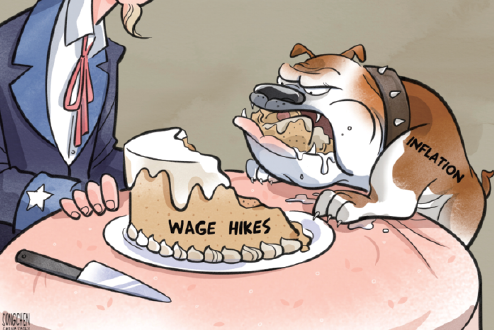
-
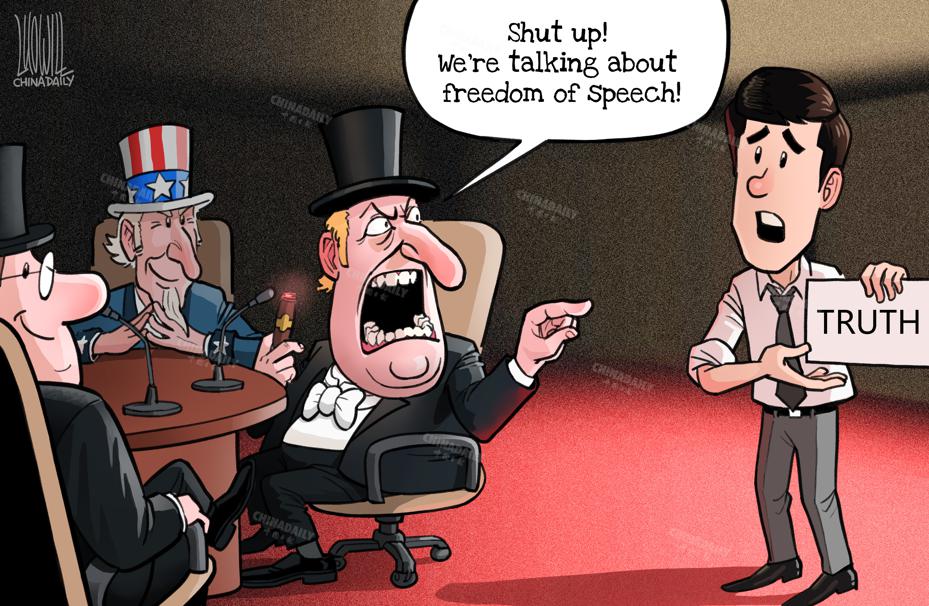
–
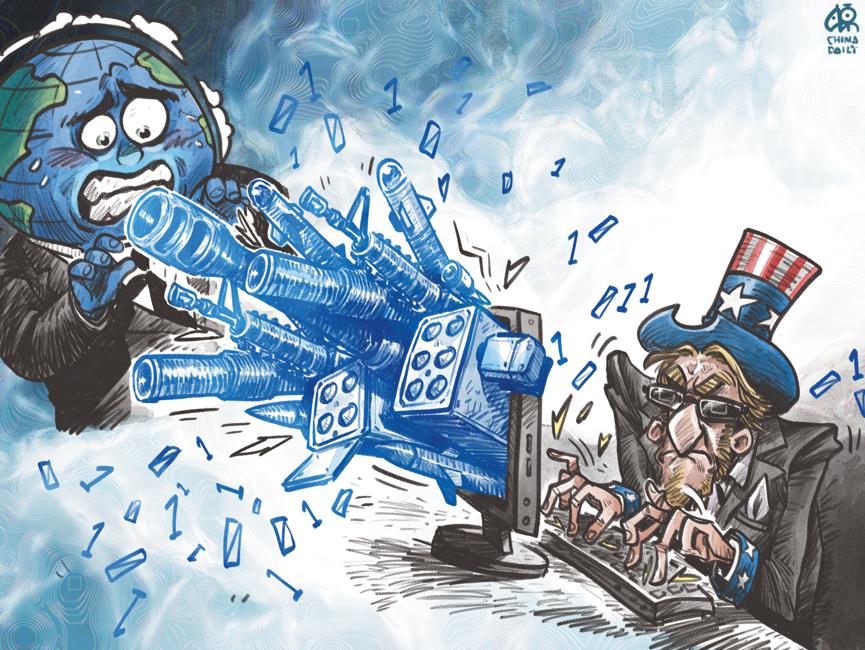
-

-

-
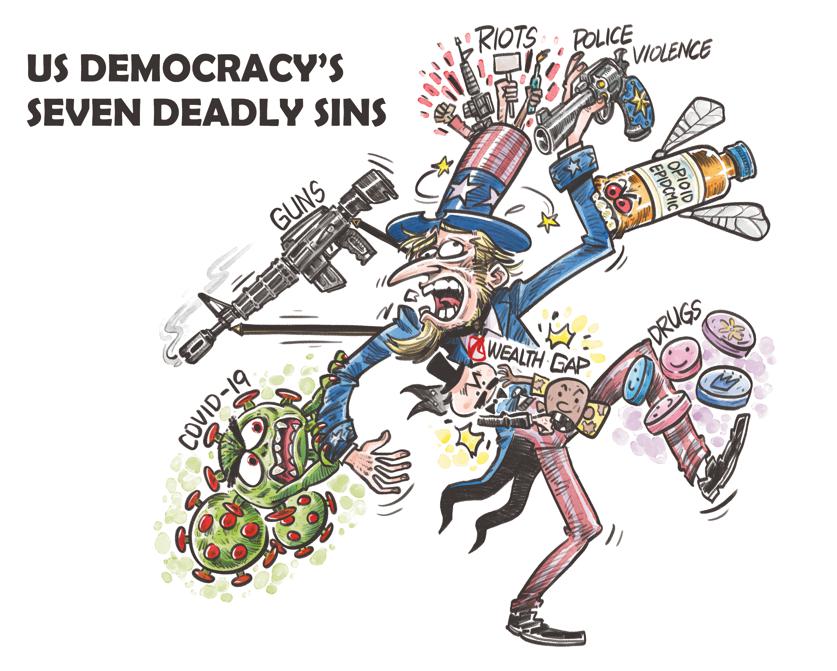
–

-

Especially, as NATO’s relentless expansion eastward caused much anxiety to Russia;

Once again, what has happened in Ukraine shows what happens to those that are misled by the US into being its pawns.

The root cause of the deteriorating situation in Ukraine is the US.

–
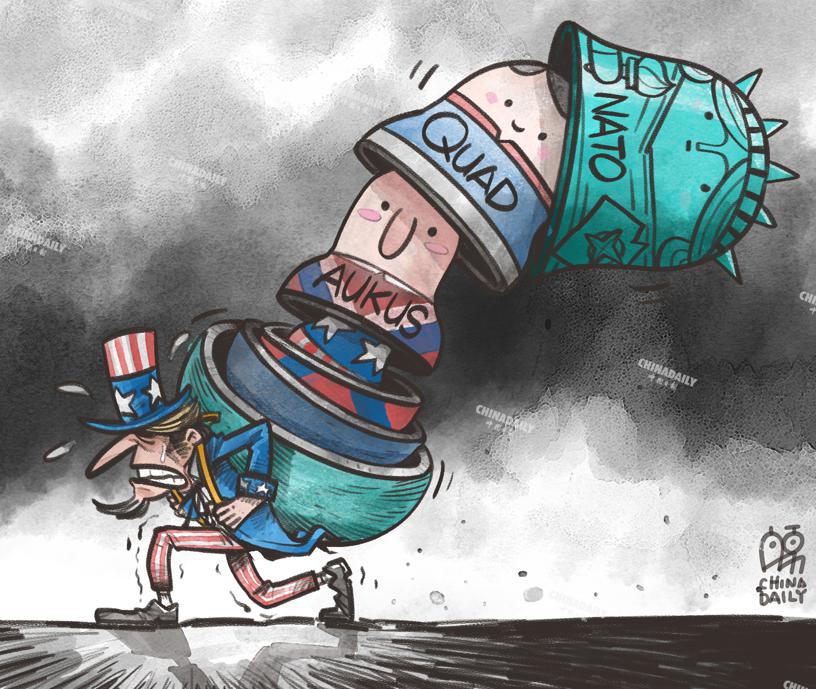
–

-
–
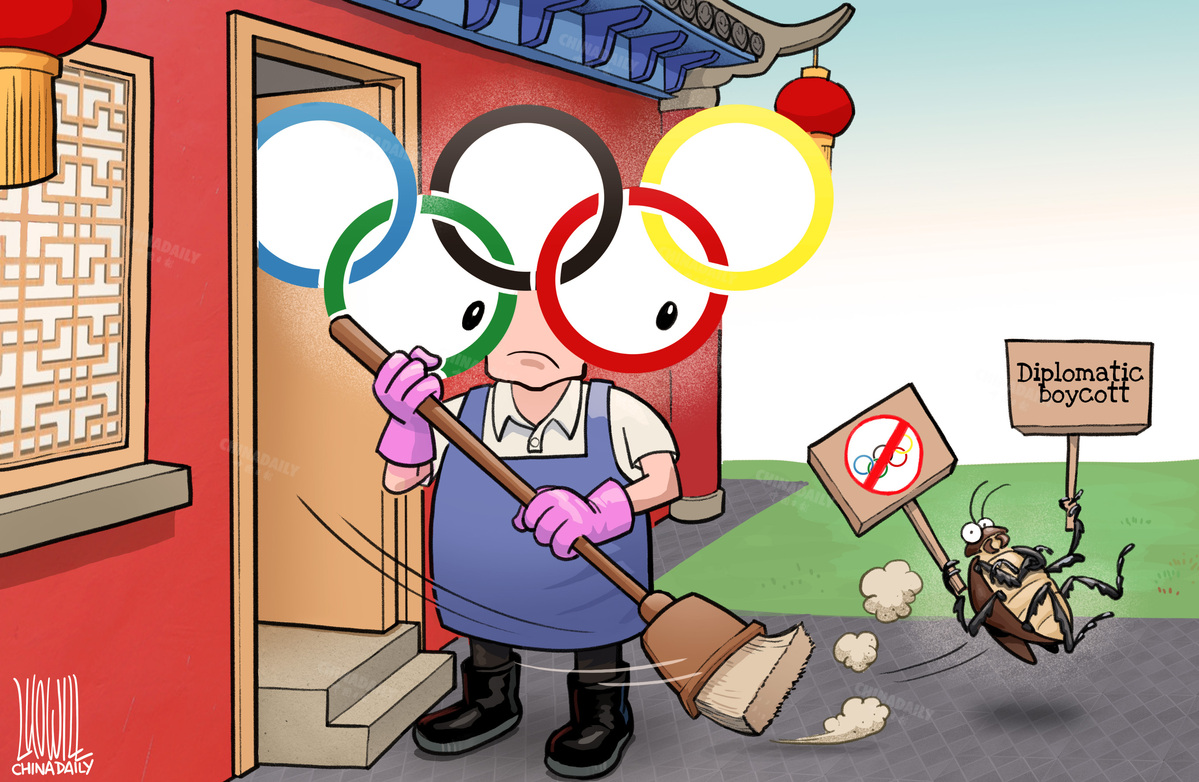
-
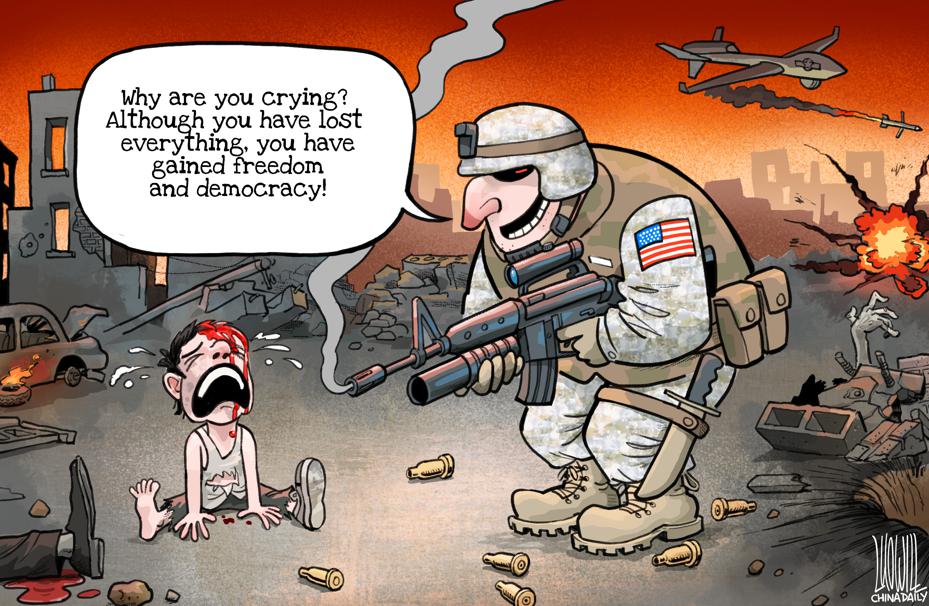
–
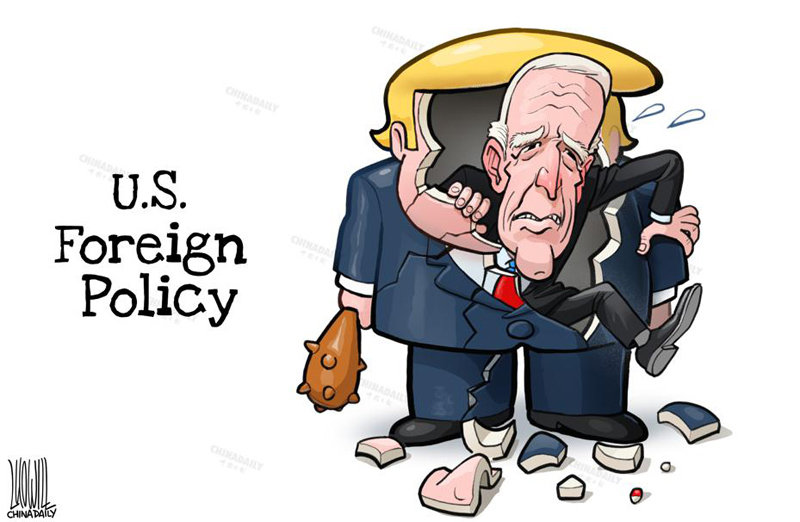
-
–
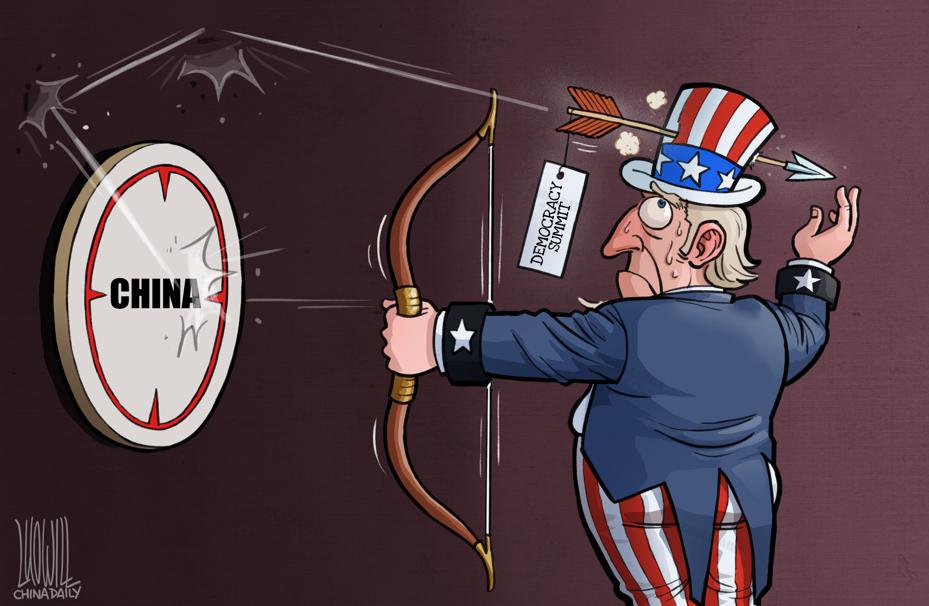
–
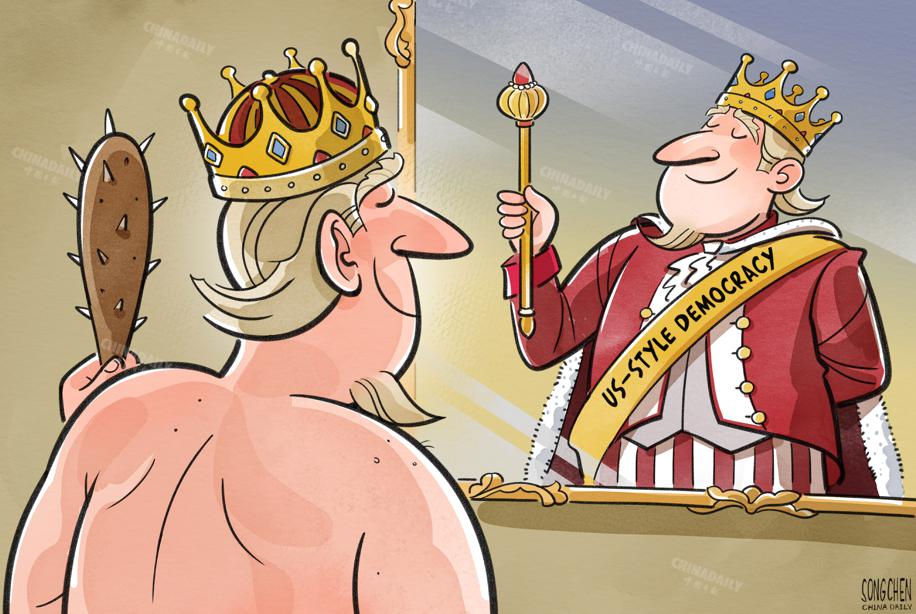
–
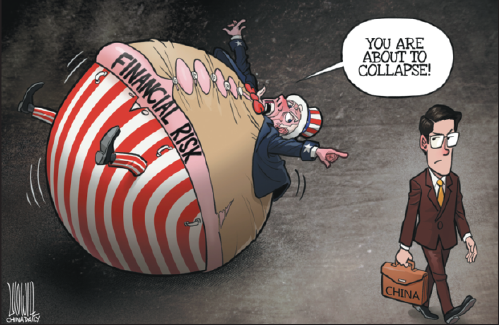
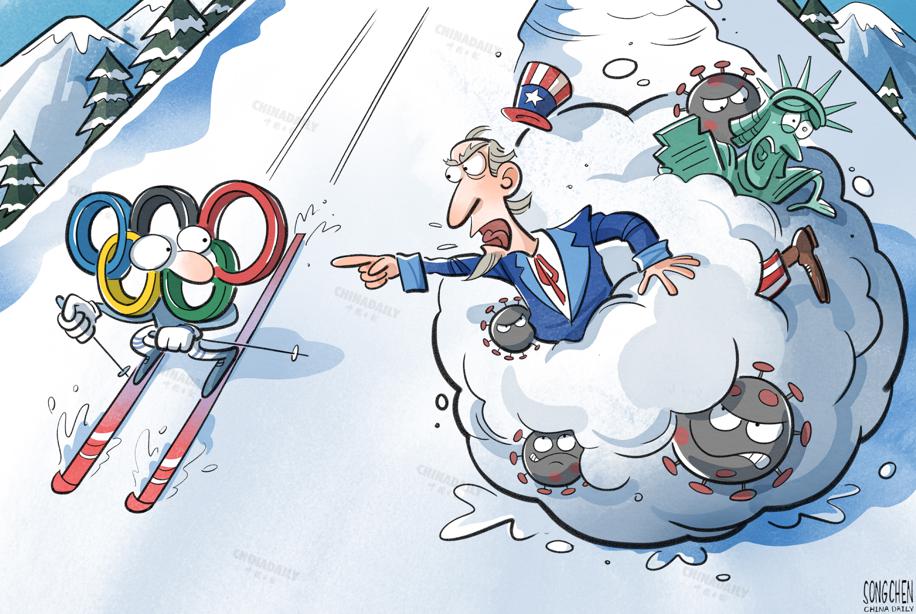
China Daily.
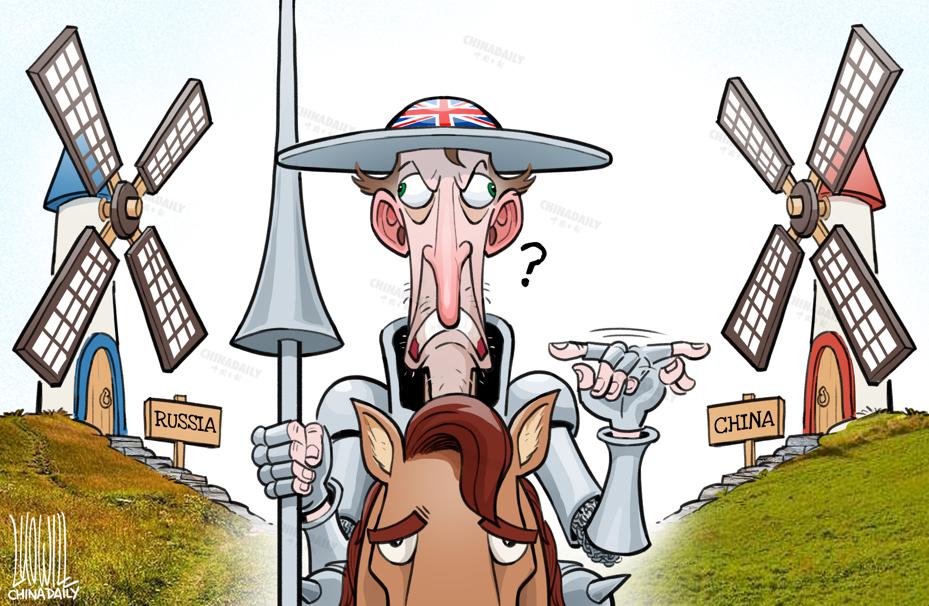
–
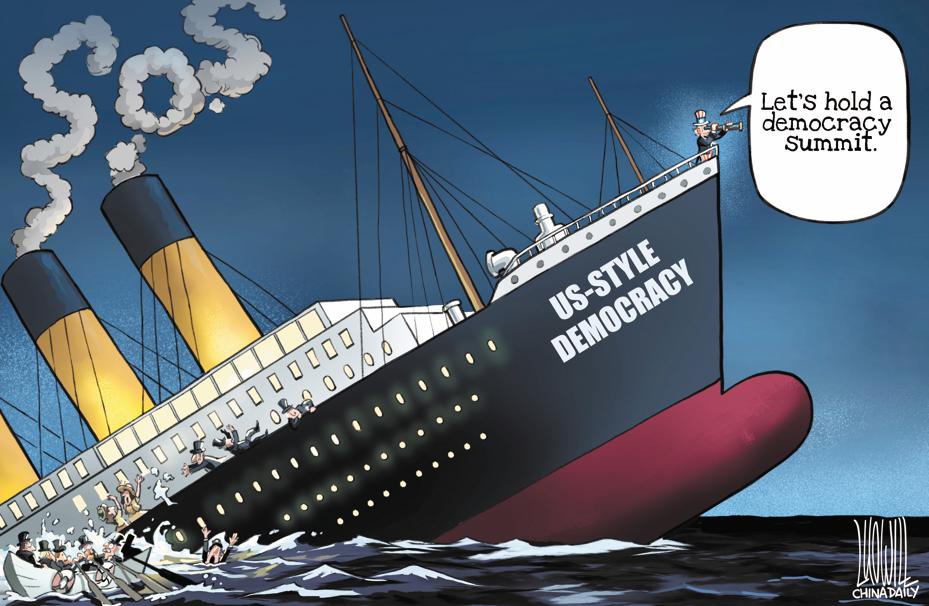
–
Ausriß. “Keine Waffen und Rüstungsgüter in Kriegsgebiete”. Die Grünen
Eighteen years ago, it used a tube of washing powder to strike Iraq.
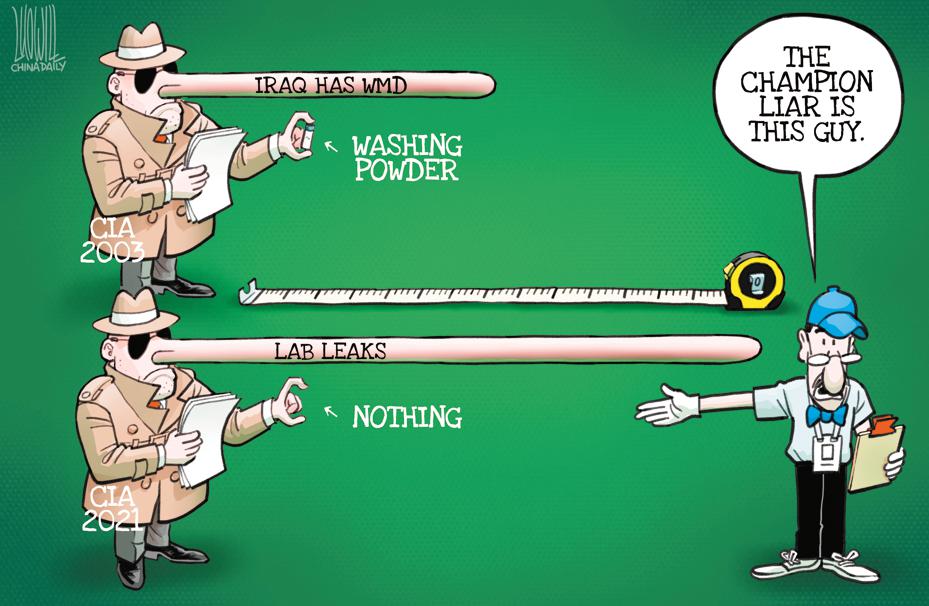
It is busy hyping up a „China collapse“, while it is the one in danger.
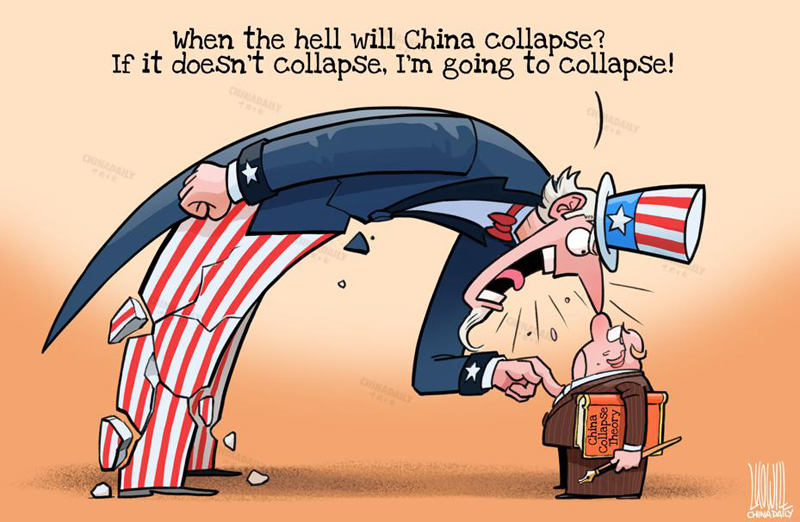
To quote Mike Pompeo, it cheats, it lies, it steals.
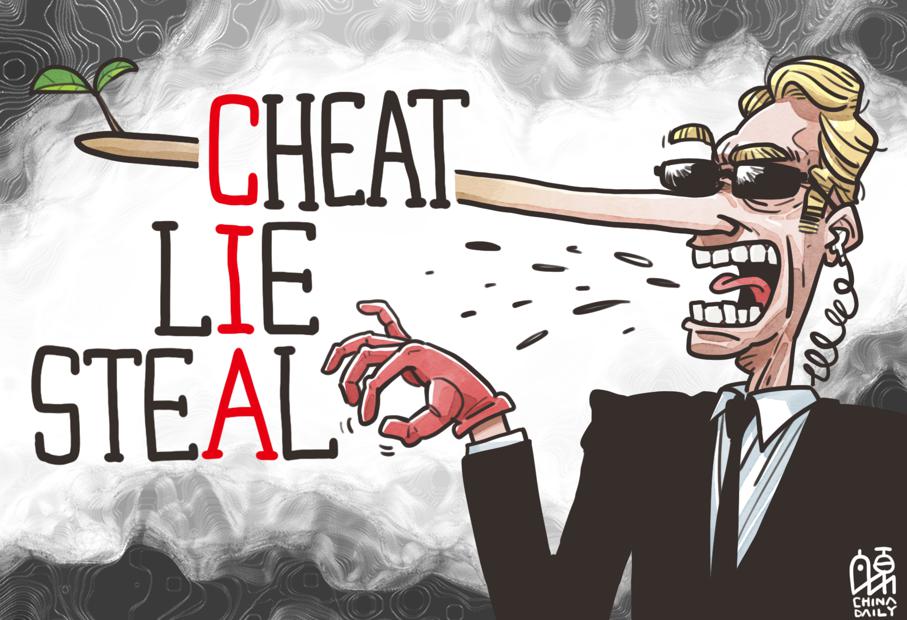
In the US, media outlets are controlled by capital, which only cares about making a profit.
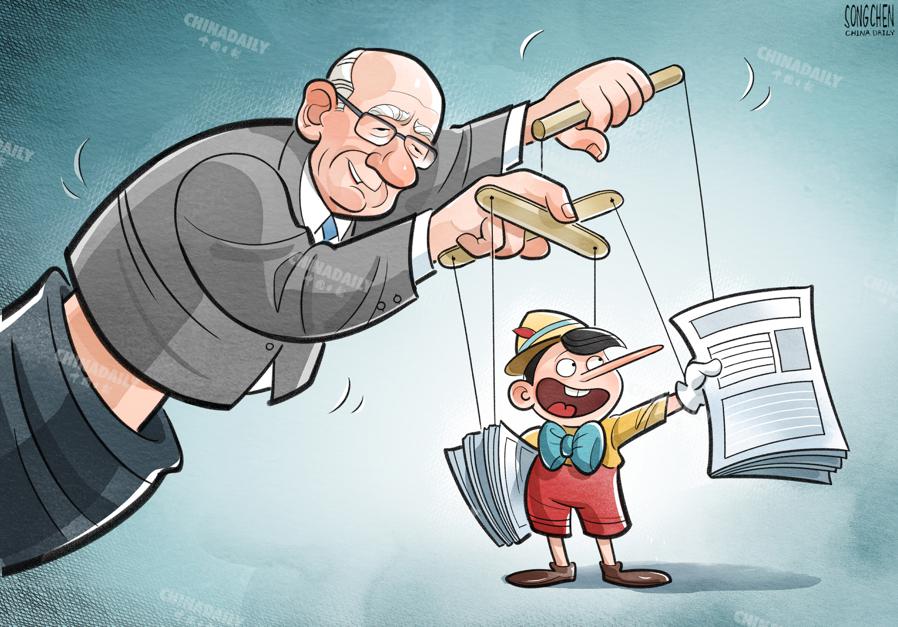
Anyone trying to tell the truth is maligned.
« China im UN-Sicherheitsrat zu Sanktionen gegen Rußland 2022:“If not properly handled, or blindly exerting pressure and imposing sanctions, it may only lead to more casualties, more property loss, more complicated and chaotic situations, and more difficulties in bridging differences“. „The root cause of the deteriorating situation in Ukraine is the US.“ China Daily – Strafmaßnahmen gegen russische Sportler und deren Verbände, gegen russische Sportfreunde/Fußballfans etc. (Sind die alle Putin-Fans?) Günstiger Nebeneffekt: Lästige russische Sport-Konkurrenz ausgeschaltet. „Russland im Weltsport isoliert“. (China wird offenbar nicht zum Weltsport gerechnet). »
Noch keine Kommentare
Die Kommentarfunktion ist zur Zeit leider deaktiviert.